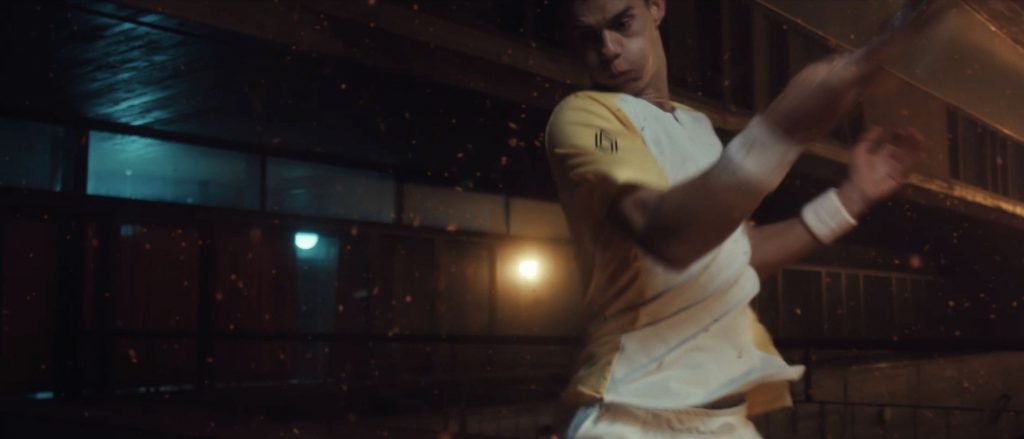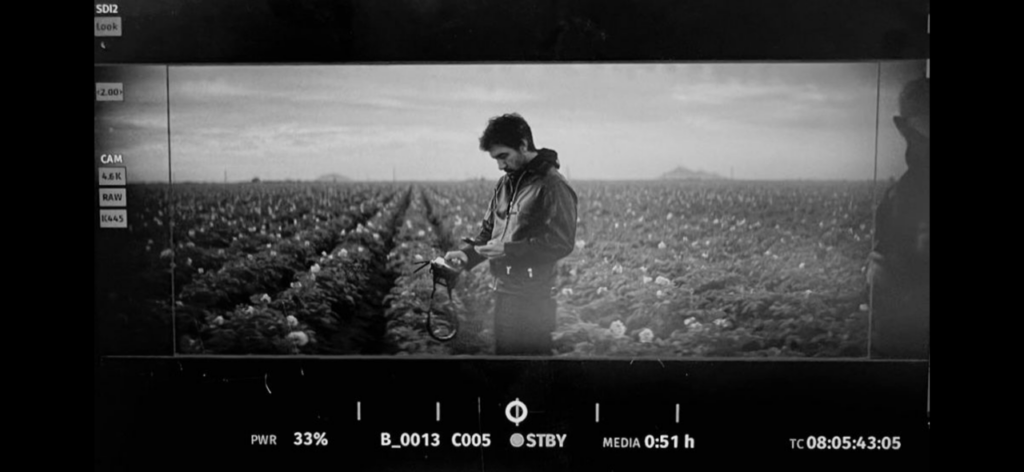Meet the Maker:
Nico Pérez Veiga

Nico Pérez Veiga, founder of Primo, is one of the world’s most acclaimed commercial directors, making work for brands like Nike, Audi, and Netflix. Nico has won almost every major award in the industry and in 2024, Primo won Production Company of the Year at CICLOPE Latino where he also took home the Director of the Year award.
How do you define exceptional craft?
Craft is an idea that’s elevated audio-visually, so that it transcends what people see and makes them feel. The only way to really grab people’s attention is to be touching. To be touching you need to be honest, and to be honest you need to not always try to sell, because constantly invading the viewer could eventually push them away.
Where is advertising work moving in your view?
We’re in an era where advertising is competing with streaming and social platforms, so it should be moving more into branded content rather than classic, product oriented ads. It’s really really hard to stand out now, this is the toughest moment in the 20 years I’ve been doing this. And the only way to stand out is to produce more innovative, more cinematic, and more entertaining work, otherwise people will just skip through it.
I’m not saying that brands should all start making movies or short films. But I am saying that no matter if the spot is 15, 90 or two minutes long, it has to be exceptional and cinematic.
When people were sitting in front of the TV with only a remote control to change the channel, it was easy. Now we have to compete with content across the many interactive channels that exist, and if we don’t compete, people are not going to choose to consume what we do.
How is craft and production developing in Latin America?
I live in the Argentine capital Buenos Aires, the end of the world. But I work across Mexico, Brazil, in Europe and in the US. Latin America is a diverse continent and its countries have very different realities. There are a few agencies and production companies elevating craft through the whole continent, and for regional work it’s Brazil, Argentina, Peru, and I would say Mexico that is leading the way by far. That’s why companies like Iconoclast and Stink have opened offices in Mexico.
Tell us a little bit about your background. How did you get into the world of production?
My father was an agency account director and then he left agency-side and started working in production companies and I started working with him. I went to film school. Then I became an assistant director and one day I said, I want to start directing.
I launched Primo with my partner Martin Kalina in 2008. We were really young, like 26. At that time, the government in Argentina was supporting small creative companies, it was a specific moment. The industry was growing, professionals were well paid and we were exporting talent.
We were working in Europe through a partner company. So when we started doing well, and we knew that creatives wanted to work with us in Argentina, we said okay, let’s open a shop and do it our way. If you had some money or an investor then it was not that expensive to open a little office back then.

What do you look for when you think of signing new talent?
I’m always looking for something that grabs my attention. I can see proper craft, beautiful images, lovely cinematography, amazing camera movements, but now I’m really after something more classic, work that could have been made years ago and still feels fresh. I’m trying to find directors that have a universal language that is timeless.
What are the main skills a young director should develop to succeed in the industry?
I think it’s about being very precise when it comes to rewriting a script for an agency. Grabbing the soul and the heart of the idea and elevating it, not changing it entirely. Directors must also be great sellers, because agencies and clients now make them present treatments verbally.
They also have to be hard working professionals. They need to be very obsessive and precise about every part of the process. The acting, the cinematography, the framing, the sound, the edit and they need to be across every detail – the performance, production design, cinematography, sound and music.
Can you tell us about any new talent you’re working with?
We have two exciting female directors, Magdalena Arrieta, she was my production designer, and Julieta Cabrera, who was my right hand when it came to visualising films. We also have a new young director, Alberto Stoker and we’re very excited about him and the way he’s developing.